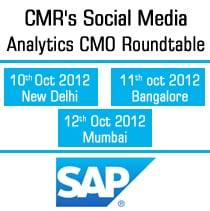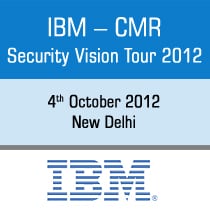 |
Businesses are past the fact that they need to use social media. Customers are using social tools to communicate, shop, research and discover — most of which are rapidly becoming an immersive experience. And so, organizations are shifting how they run their business around that fact.Social media analytics is rapidly evolving, always challenging the ways marketers measure and draw insights from web and social media. CMR defines social analytics as the data that measures key activity and engagement around people’s social graphs. Data is not that meaningful unless it captures what really matters. Equipped with that data, marketers can then tie social with purchase information to model sales effectiveness.Finding meaning in people’s comments is a Big Data challenge. Many social media sites provide access to customer data via public API’s; however, combing through data in a variety of formats and extracting comments relevant to the subject of interest is a significant challenge. After extracting the data and determining the relevance of each comment, assessing the sentiment (positive, negative, or neutral) creates a further challenge.The volume of data, rapid pace of social opinions, and the time value of information all place scale and latency demands on the process — the value of social data is directly proportional to how quickly a company acts on it.CMR recommends brands follow these tips to understand how many people are buying a product because of social marketing efforts:
Companies have come to realize that the popularity of social media creates a viable forum for the voice of the customers. This creates a major opportunity for companies to harness customer perceptions and use them to better understand what people are saying on a topic or about a company. CMR feels businesses can benefit greatly from gauging three aspects of analytics: Reach Marketers understand the social scale of their brands. They know how many fans, followers, subscribers, visitors and views they have, and how many discussions are taking place. They have visibility into where, when and in what context their brand is being discussed. Engagement Marketers have moved beyond counting fans. They have insight into the activities in their various communities. They analyze the drivers of participation and amplification, studying the patterns in comments, likes, shares and take rates. Advocacy Marketers can identify and encourage user behaviors that are associated with brand commitment. These include such metrics as: intent to recommend referral and re-share activity, comments and followers per user, and brand favorability, consideration and preference Key topics of discussion at the roundtable: □ Leveraging on New Social Business & collaboration capabilities □ Technology enablers to optimize Performance Measures □ Understanding consumer needs □ Engage effective tools for market trends □ ROI Accountability Who should attend? A must attend event for CMO, VP/GM, Marketing heads, Brand Managers, Product Managers and other key marketing decision makers and influencers from large enterprises across verticals. |
CMR’s CMO Roundtable

- More : Archive Events, Physical
IBM – CMR Security Tour 2012 / Speakers
msharma
September 20, 2012
IBM – CMR Security Tour 2012 / Agenda
msharma
September 20, 2012

IBM – CMR Security Vision Tour 2012
msharma
September 14, 2012
A Wipro – CMR Live CIO Webinar on BYOD / Registration
msharma
September 14, 2012
A Wipro – CMR Live CIO Webinar on BYOD / Speakers
msharma
September 13, 2012
A Wipro – CMR Live Webinar on BYOD/Presenting Partner
msharma
September 13, 2012

Enterprise Security Challenges in the Emerging BYOD Era
msharma
September 10, 2012




